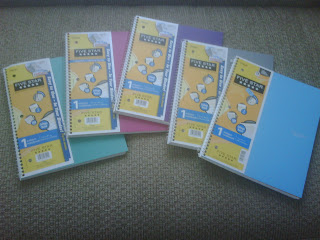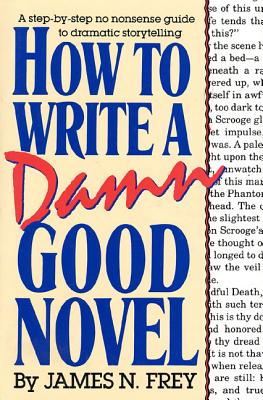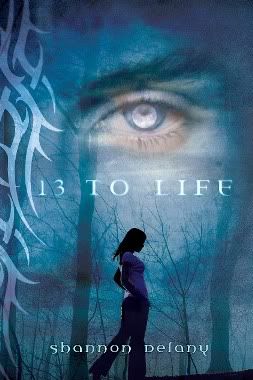. You can catch the live #yalitchat on twitter, Wednesday night at 9pm EST or anytime on the web at
.
Last night, we talked about sex. Also word count(40-60k is average for YA) and slang, but mostly the sex. A taboo topic that seems to be becoming the norm in teen fiction.
Does your book need to have nookie to sell?
Heck no! In fact, it may even lessen your chances at a sale if done in bad taste.
Sex is a part of teen life. Not all teens, of course, but if we're being real we know they're doing it. As writers, we want to incorporate every part of teen life into our books. We want the stories we spin to be as real to them as their own lives.
Everything is bigger, more important, felt deeper when you're a teen. One of the most important, most monumental experiences for a teen, is the first time they have sex. That doesn't mean that the sex in your book has to have monumental consequences. It could change the relationship, it could change the character's outlook on things. Or, she could end up pregnant, or with a heady case of the clap. Your choice. Point is, it doesn't have to end badly, because it doesn't always in real life. The last thing you want to do is try to teach a lesson with your writing. If you don't agree with sex in YA, don't write it. Simple as that.
If you do decide to write sex in to your story, do it tastefully. Explicit sex is a big no-no in YA. Besides, you'd probably feel icky writing it. Lit agent, Elana Roth had this to say last night:
@: I think people use explicit sex b/c they dont know how to really depict the emotional arc behind it. Its cheap.
Don't write sex for the sake of writing it. If it feels forced to you, you don't need/want it in there. Often a first kiss can be even more sensual than sex. I'm going to post a first kiss scene from one of my works. It isn't finalized (is it ever?), but I hope you'll get a taste of what I mean with a first kiss. This scene comes after a few almost kisses, and lots and lots of sexual tension. This kiss deepens the relationship between the MC and Drystan.
The rain trickled from his nose and eye lashes onto his face leaving behind glistening trails like rilles on the surface of the moon. He took my chin in his hand and I had to fight to keep myself from getting lost in those electric blue pools. He was terrifying and beautiful and I couldn’t look away. My cheeks flushed hot as he moved his face closer to mine. His cool, sweet breath—lavender, like his skin, tickled my nose.
“Drystan—” But before I could utter another word, his hand clamped onto my lower back, pulling me toward him and he pressed his lips to mine. I tensed, only for a moment and then my hands rested on the dimples of his hips like they’d always belonged there. His fingers nipped at my skin, pulling me tighter still, pawing at my back, my shoulders, cupping my face. His lips were even softer than I’d imagined and I felt like melting ice in his hands. His kiss was dizzying, as cool and sweet as his breath. But then it turned in to something deeper.
Hungry.
There was no sex in that scene. Only a passionate first kiss. It was my favorite scene to write and I hope you enjoyed reading it. If not, feel free to tell me. *wink*
Here is another example of how a first kiss can go. This work, another of mine, is in the rough draft stages. I probably shouldn't be posting it because of that, but what the heck. In this one, the main character is in the bedroom of a boy who is obviously crazy about her, but she can't stop thinking about Jesse, the boy she can never have. The reason she can't have him, I'll keep to myself. This kiss takes the relationship of both the MC and her friend, Tom, in a whole new direction.
I closed my eyes. I could hear Tom stand up and cross the room. He sat next to me on the futon, still playing, still singing. It was almost as if Jesse had walked into the room with me.
I pictured Jesse’s face, sitting beside me instead of Tom. He was so incredibly beautiful. I reached out and touched his soft, full lips. He stopped singing. I felt him lean closer to me, pictured the longing I felt in his eyes. I leaned in and pressed my lips to his. We kissed, slowly at first, but then with more fire.
Jesse set his guitar down and slid closer to me. His breath was sweet, spearmint. He tangled his fingers in my hair and pressed our lips together, harder. I touched his cheek with my hand, felt the corner of his mouth with my thumb as his lips parted.
“Jesse…”
So again, first kiss that can have more of an effect on the story than a sex scene. Or at least I hope it does.
Getting back to sex, if you're going to write it make sure it's realistic, not graphic and pertinent to your story. Like anything else, if it doesn't move your story along, don't include it. Lit agent and YA author, Mandy Hubbard, had this to say:
@: Sex isnt really edgy, anymore, in YA. Its just.... realistic. But still gotta handle it authentically!
And there you have it, folks. Do the do, or don't. But whatever you decide, keep it real.
If you have a great kiss scene that you'd like to share, we'd love to read it!











